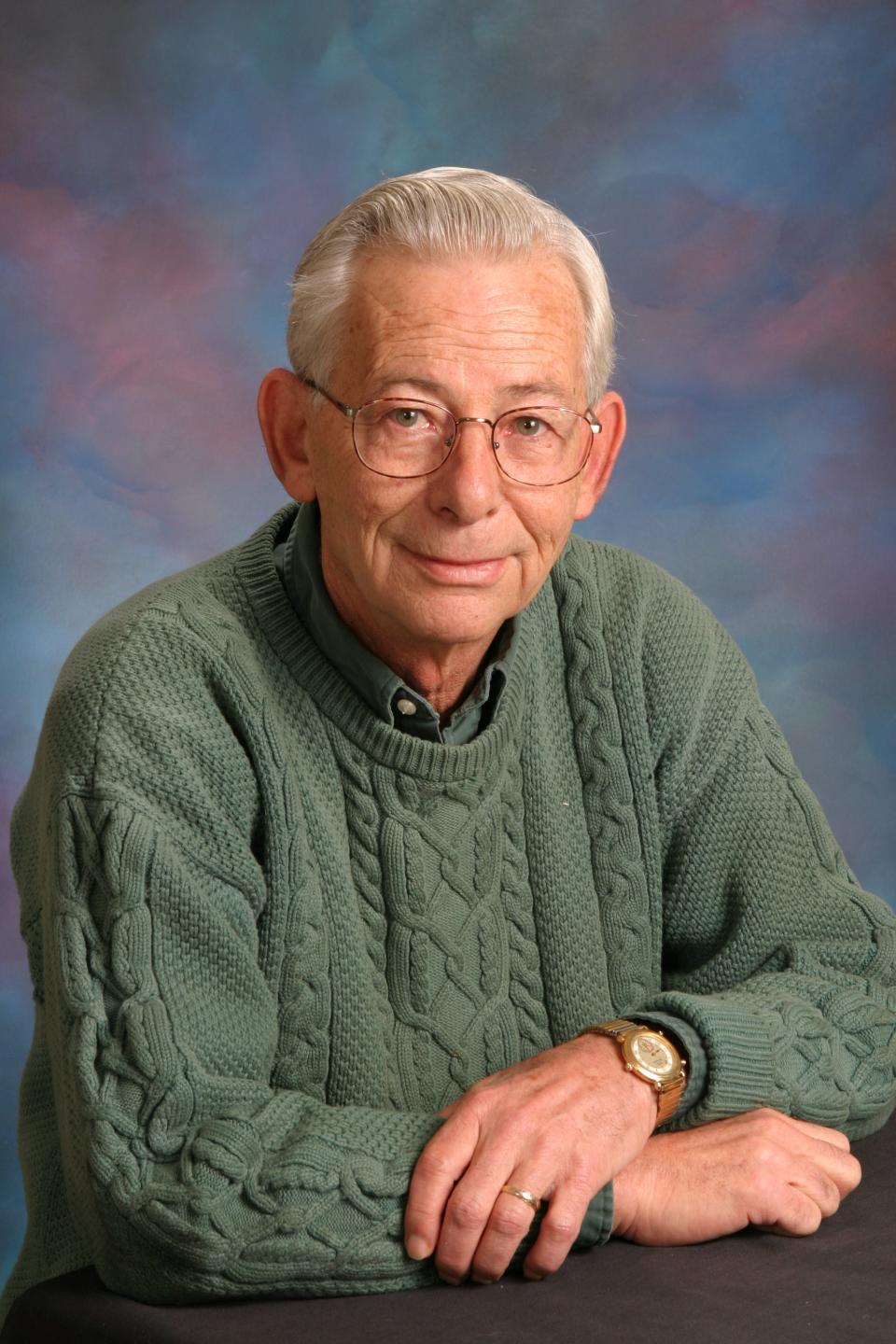CSU professor emeritus Charles Calisher receives Walter Reed Medal for work on arboviruses
- Oops!Something went wrong.Please try again later.
- Oops!Something went wrong.Please try again later.
Longtime Fort Collins resident Charles Calisher, an emeritus professor of microbiology at Colorado State University, was recently awarded the American Society of Tropical Medicine and Hygiene’s top honor, the Walter Reed Medal, for his extensive achievement in the field.
Calisher, 87, was honored for a lifetime of work studying the transmission of viruses from animals and insects to humans, first with the U.S. Centers for Disease Control and then CSU.
Walter Reed was a physician with the U.S. Army who led a team that confirmed the theory of Cuban doctor Carlos Finlay that yellow fever is transmitted by mosquitoes rather than direct contact, according to multiple sources, including the Army Historical Foundation. That knowledge allowed workers to take necessary precautions to complete work on the Panama Canal that had previously been abandoned because of deaths caused by the disease, Calisher said.

Calisher has published more than 350 papers, articles and studies, 75 book chapters and reviews and 18 books on arboviruses, rodent-borne viruses, bat-borne viruses, fellow researchers Thomas Monath and Frederick Murphy wrote in an introduction and tribute to Calisher for a 2021 theme issue on his work that appeared in a trade publication.
Calisher was nominated for the Walter Reed Medal separately by two professionals in tropical medicine — Monath, the 2002 recipient and CEO of Crozat BioPharma in Bolton, Mass.; and Pedro Vasconcelos, a professor of pathology at Para State University in Brazil — an ASTMH spokesperson wrote in an email to the Coloradoan confirming his selection.
More: CSU plans to build a new bat research facility in Fort Collins. Here's what we know
“Charlie Calisher started his career about 60 years after Walter Reed, but he’s followed Reed’s quest for knowledge, commitment to teaching others and rejection of theories without supporting evidence,” Monath said in a YouTube video played at ASTMH’s annual convention last month in Chicago, where Calisher received the award.
Health concerns prevented Calisher from attending this year’s convention in person.
He said Tuesday he was “shocked” when he first received the news, and then began sharing stories of collaborative partnerships he formed during annual gatherings he helped run every fall at CSU’s Mountain Campus at Pingree Park that brought together professionals, researchers and academics in insect-, rodent-, bird- and other animal-related viruses and human transmission from several western states.
One of those collaborative partnerships led to an article Calisher co-wrote with CSU immunology professor Tony Schountz and experts from the medical schools at the University of Colorado and Yale and a biologist in Australia about bat-borne transmission of emerging viruses that was published in 2006, not long after the 2003 worldwide outbreak of the SARS virus. The COVID-19 virus was also found to be transmitted from bats to humans, leading to a worldwide pandemic.
“I think there were 100,000 requests for reprints, and normally we get a request somewhere in the order of 50 for these types of papers,” Calisher said. “Now we know there are hundreds of known bat viruses.”
More: CSU announces new laser facility to create clean energy through fusion
Calisher earned a bachelor’s degree at the Philadelphia College of Pharmacy and Science in 1958, his master’s at the University of Notre Dame in 1961 and his Ph.D. from the Georgetown University School of Medicine in 1964. He began working for the CDC in Atlanta in 1995 and then relocated to Fort Collins in 1973 when the CDC moved its arboviral diseases branch to its Division of Vector-Borne Infectious Diseases Laboratory on CSU’s Foothills Campus. When he retired from the CDC in 1992, he moved across the street to CSU’s Center for Vector-Borne Infectious Diseases, where he worked on hantaviruses until retiring again in 2015.
Calisher is the 39th recipient of the Walter Reed Medal, which was first awarded in 1936 to Reed’s widow, Emilie Lawrence Reed. It was awarded sporadically from then through 2017 before becoming an annual award of the association in 2020.
In a statement read when his selection was announced, Calisher wrote: “Woody Allen wisely said, '80% of life is just showing up.' — that’s what I did. Encouraged and supported by many remarkable co-members of ASTMH — way too many to mention here — I became increasingly fascinated by arboviruses and other viruses. That portion of my life has not ended and I encourage others to delve into these causes — and non-causes — of human and wildlife diseases in order to gain further insights to what fascinated you when you were younger. It’s better than having a job.”
Reporter Kelly Lyell covers education, breaking news, some sports and other topics of interest for the Coloradoan. Contact him at kellylyell@coloradoan.com, twitter.com/KellyLyell or facebook.com/KellyLyell.news.
This article originally appeared on Fort Collins Coloradoan: CSU microbiology professor Charles Calisher receives Walter Reed Medal

